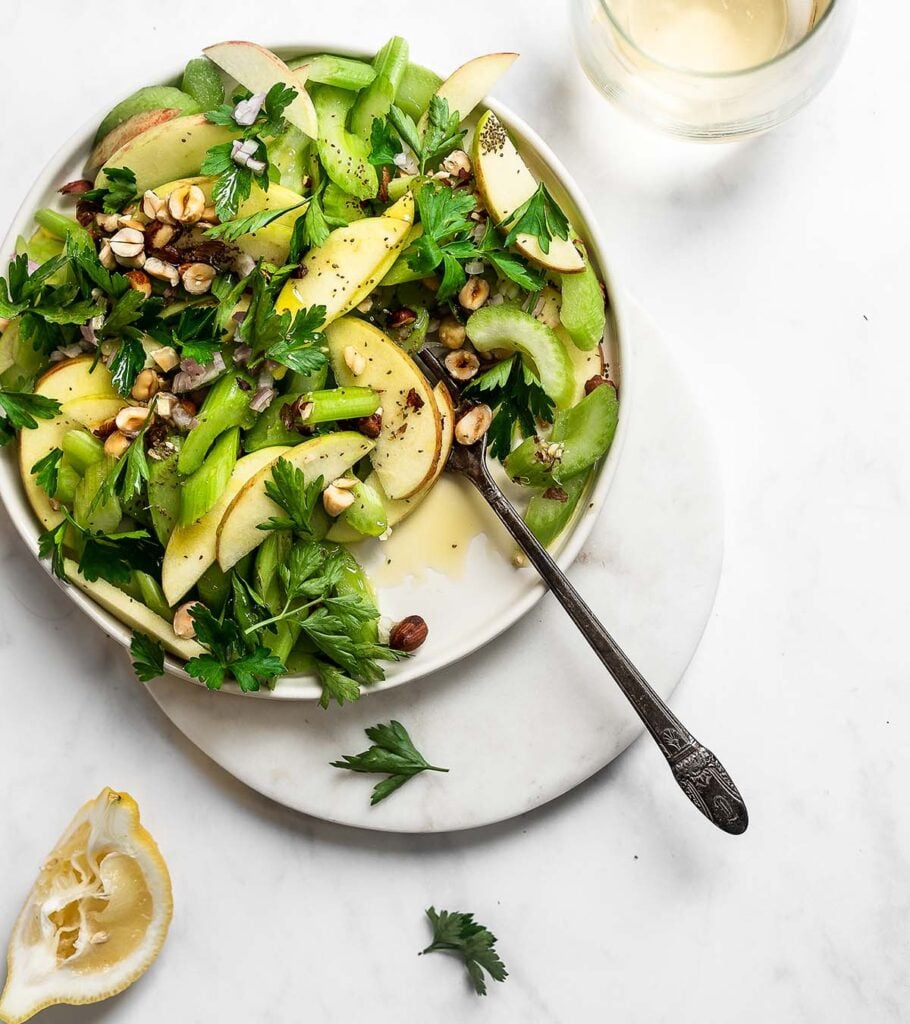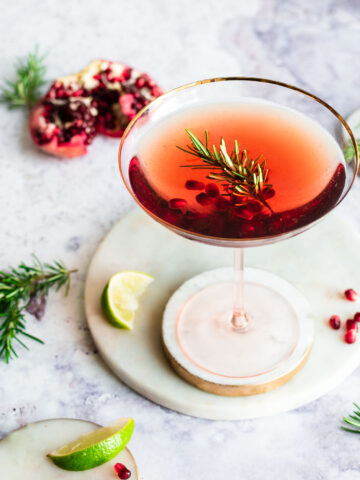Spiked with citrus and fragrant with cinnamon, allspice, and cloves, this mulled cider recipe is a cinch to make and always a favorite winter drink. It's also a flexible recipe, and you can make this version on your stove or even in your slow cooker or Instant Pot.

Jump to
What is it?
Hot mulled cider is unsweetened, unfiltered apple juice that's infused with spices and served during the cold months. It's similar to wassail, to which it's related; however, unlike wassail, mulled apple cider is typically nonalcoholic.
What's in it?
At its simplest, mulled cider contains unfiltered apple juice and mulling spices such as cinnamon, allspice, and cloves. Nineteenth-century recipes often include beaten eggs as well as sugar in addition to spices such as cinnamon and cloves (1,2).
In this version, I also include sliced oranges which lend sweetness and help amplify the cider's tart top notes as well as cardamom which blends beautifully with apple.
What are mulling spices?
Mulling spices are fragrant spices added to hot wintertime drinks such as wassail, cider, and mulled wine. They usually include cinnamon, allspice, cloves, and nutmeg, but the mix can also include peppercorns, coriander, anise, cardamom, and similar spices. These spices generally have a warming energy and support good digestion.
Instead of using ground spices, I recommend using them whole (if you can find them) as whole spices tend to be richer in volatile oils than the ground spices you find in the grocery store. That means bigger flavor.
In this version, I've used cinnamon, allspice, cloves, star anise, and cardamom.
Cinnamon sticks have a toasty, warm energy and a sweet, spicy aroma. It also supports good digestion and blood sugar balance.
Allspice has a mellow spice that encompasses other similar flavors - as though it's a blend of nutmeg, cinnamon, and cloves.
Cloves are the dried buds of an evergreen tree, and they have a potent, sweet, and spicy flavor. A little goes a long way.
Star anise is rich in antiviral compounds and helps support both digestion and the immune system. It has a floral note coupled with an anise-like sweetness.
Cardamom tastes vaguely of citrus, mint, and fennel. Like other spices you use for mulled cider, it supports good digestion.
Tips for good cider
It takes minimal effort to make mulled cider, and the results are vibrantly delicious - sweet, tart, and steeped with deep and resonant spice. It's also a recipe that has a fair amount of room for both error and variation. But, there are a few things to keep in mind to make sure it comes out every time.
- Look for raw, unfiltered apple cider. Apple juice is clear and sweet, but lacking the complexity of true cider which is unfiltered and raw.
- When making it on the stove, heat the cider until it's just steaming (but not quite boiling). This allows the spices to release their aromas and flavors more effectively.
- The cider grows stronger the longer it simmers. It's nice to keep the cider simmering with both spices and citrus until the bowl's empty. This means the final few mugs will taste intensely spiced (which I find delicious). If you prefer a milder flavor, strain the mulled cider through a fine-mesh sieve into a jar and then return it to a clean pot to keep warm.
- Store mulled cider for up to 5 days in the fridge, and then bring it up to about 135 F to serve.
Variations
Add alcohol. If you prefer a boozy version, try wassail. Or substitute a mix of hard cider and brandy for the soft cider called for in this recipe.
Add other fruit juices. You can swap other fruit juices, such as pomegranate, sour cherry, or unsweetened cranberry juice for part of the apple cider. This variation made with cranberry is delicious.
Using packaged mulling spices. You can find packets of mulling spices in most grocery stores, herb shops, and natural grocers in the fall and winter. So, if you don't care to keep a full spice rack, you can always use a packet instead. Look for packages that contain whole spices for best flavor.
Adjust the mulling spices based on what you have in your pantry. If you have coriander, but not cardamom, use that. If you don't care for cloves, but like nutmeg, use nutmeg instead.
Love this recipe? There's more.
Join Nourished Kitchen+ for ad-free browsing, nourishing monthly meal plans, live workshops, and access to all our premium downloads.

Try these other winter drinks next:
References
- Leslie, Eliza. (1840) Directions for Cookery, in Its Various Branches.
- Tyree, Marion Cabell. (1878) Housekeeping in Old Virginia.










Mimi says
WE LOVED this. I served it for a Twelfth Night party, and it was so good. Really simple, and the orange makes all the difference. I'm thinking of adding brandy next time.